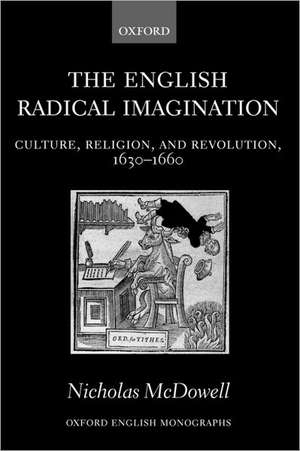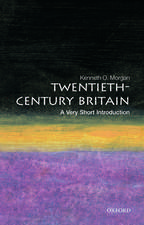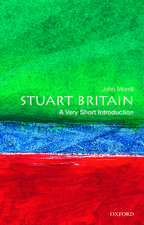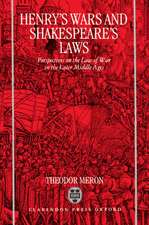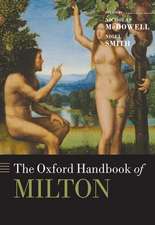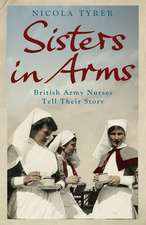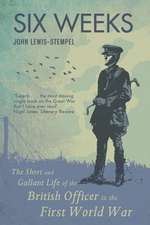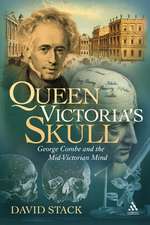The English Radical Imagination: Culture, Religion, and Revolution, 1630-1660: Oxford English Monographs
Autor Nicholas McDowellen Limba Engleză Hardback – 6 noi 2003
Din seria Oxford English Monographs
- 12%
 Preț: 492.54 lei
Preț: 492.54 lei - 28%
 Preț: 472.45 lei
Preț: 472.45 lei - 28%
 Preț: 487.35 lei
Preț: 487.35 lei - 23%
 Preț: 473.01 lei
Preț: 473.01 lei - 24%
 Preț: 498.33 lei
Preț: 498.33 lei - 21%
 Preț: 528.16 lei
Preț: 528.16 lei - 28%
 Preț: 497.29 lei
Preț: 497.29 lei - 28%
 Preț: 406.14 lei
Preț: 406.14 lei - 16%
 Preț: 473.94 lei
Preț: 473.94 lei - 28%
 Preț: 473.47 lei
Preț: 473.47 lei - 26%
 Preț: 527.79 lei
Preț: 527.79 lei - 22%
 Preț: 497.63 lei
Preț: 497.63 lei - 30%
 Preț: 516.27 lei
Preț: 516.27 lei - 28%
 Preț: 437.84 lei
Preț: 437.84 lei - 26%
 Preț: 515.71 lei
Preț: 515.71 lei - 28%
 Preț: 498.33 lei
Preț: 498.33 lei - 12%
 Preț: 494.84 lei
Preț: 494.84 lei - 27%
 Preț: 407.74 lei
Preț: 407.74 lei - 23%
 Preț: 472.09 lei
Preț: 472.09 lei - 16%
 Preț: 472.24 lei
Preț: 472.24 lei - 16%
 Preț: 473.16 lei
Preț: 473.16 lei - 25%
 Preț: 490.28 lei
Preț: 490.28 lei - 25%
 Preț: 521.94 lei
Preț: 521.94 lei - 30%
 Preț: 505.56 lei
Preț: 505.56 lei - 30%
 Preț: 673.12 lei
Preț: 673.12 lei - 34%
 Preț: 774.20 lei
Preț: 774.20 lei - 23%
 Preț: 329.18 lei
Preț: 329.18 lei - 34%
 Preț: 800.49 lei
Preț: 800.49 lei - 34%
 Preț: 1078.63 lei
Preț: 1078.63 lei - 34%
 Preț: 1034.87 lei
Preț: 1034.87 lei - 34%
 Preț: 1167.37 lei
Preț: 1167.37 lei - 34%
 Preț: 1019.76 lei
Preț: 1019.76 lei - 31%
 Preț: 351.12 lei
Preț: 351.12 lei - 20%
 Preț: 230.49 lei
Preț: 230.49 lei - 34%
 Preț: 979.50 lei
Preț: 979.50 lei - 34%
 Preț: 1181.23 lei
Preț: 1181.23 lei - 20%
 Preț: 272.80 lei
Preț: 272.80 lei - 34%
 Preț: 1035.28 lei
Preț: 1035.28 lei - 34%
 Preț: 1080.62 lei
Preț: 1080.62 lei - 46%
 Preț: 466.34 lei
Preț: 466.34 lei - 34%
 Preț: 991.10 lei
Preț: 991.10 lei - 34%
 Preț: 874.40 lei
Preț: 874.40 lei - 31%
 Preț: 698.29 lei
Preț: 698.29 lei - 34%
 Preț: 860.98 lei
Preț: 860.98 lei - 34%
 Preț: 1108.02 lei
Preț: 1108.02 lei - 34%
 Preț: 859.05 lei
Preț: 859.05 lei - 34%
 Preț: 1006.88 lei
Preț: 1006.88 lei - 34%
 Preț: 1196.96 lei
Preț: 1196.96 lei - 31%
 Preț: 421.29 lei
Preț: 421.29 lei
Preț: 1035.56 lei
Preț vechi: 1576.14 lei
-34% Nou
Puncte Express: 1553
Preț estimativ în valută:
198.22€ • 215.38$ • 166.61£
198.22€ • 215.38$ • 166.61£
Carte tipărită la comandă
Livrare economică 09-15 aprilie
Preluare comenzi: 021 569.72.76
Specificații
ISBN-13: 9780199260515
ISBN-10: 0199260516
Pagini: 232
Dimensiuni: 143 x 224 x 18 mm
Greutate: 0.45 kg
Editura: OUP OXFORD
Colecția OUP Oxford
Seria Oxford English Monographs
Locul publicării:Oxford, United Kingdom
ISBN-10: 0199260516
Pagini: 232
Dimensiuni: 143 x 224 x 18 mm
Greutate: 0.45 kg
Editura: OUP OXFORD
Colecția OUP Oxford
Seria Oxford English Monographs
Locul publicării:Oxford, United Kingdom
Recenzii
...a welcome reappraisal that is helpful, insightful and comprehensive.
One of the real strengths of this book is the careful and often surprising close textual readings McDowell provides . . . This book opens up new ways if thinking about radical belief in the seventeenth century. . . . McDowell's incisive and well-informed reading of unusual writings helps us to understand how humanism was rejected and adapted in the 1640s . . . This is an exemplary book in its attempt to look backward as well as forward. McDowell explores his subject in a probing and thought-provoking way and offers astute rhetorical analysis.
McDowell's book provides a fresh reading of radical texts as complex literary artefacts, the works of sophisticated and well-read social critics. We can no longer turn to these texts to encounter the voices of unlearned mechanics, and we must revise our conceptions of the audience for whom these texts were written. McDowell succeeds very well in uncovering evidence of high culture in radical texts, but this project is not an end in itself. His larger purpose is to recover a culture shaped by the interaction of "the cultural worlds of the high and the low.
Stimulating and subtle book . . . [McDowell] is surely right in claiming that there is much to be learnt about the early modern period, and radicalism in particular, from literary analysis . . . McDowell's literary treatment of radicals - Levellers, Ranters and Quakers - pursues a grand purpose through a specific project . . .[his] recovery of the learning which underpinned the works of at least some radical authors is extremely valuable.
McDowell's interesting and learned book The English Radical Imagination might be read as an extended and highly productive dialogue with the work of Christopher Hill . . . Bringing to bear a pleasingly sceptical eye - as well as a great deal of new scholarly work . . . McDowell convincingly demonstrates, here and throughout his book, that radicalism was complex, intellectually demanding, and surprisingly literary . . . this is an impressive book.
(McDowell's) thesis . . . is persuasively and eloquently argued and all future accounts of radicalism will have to take account of it.'
As [McDowell] points out, Milton was not alone in his combination of high intellectualism and determined radicalsim . . . McDowell has a fine sense of the vitality and inventiveness of some (learned) radicals' attacks on the curricular concerns of schools and universities after a century of humanist dominance had cemented the positions and the approaches of the protestant clergy. A final fascinating chapter suggests how close the university-trained Quaker Samuel Fisher stood to Spinoza and to what was to become English Deism.'
...this is an impressive book, which is all the better for the fact that it raises the kinds of important questions about the extraordinary middle decades of the seventeenth century.
Within his chosed limits McDowell writes with impeccable scholarship and makes a significant contribution.
Through a subtle blend of biographical material and literary interpretation McDowell succeeds in building a sustained and at times compelling argument...this is an excellent book
One of the real strengths of this book is the careful and often surprising close textual readings McDowell provides . . . This book opens up new ways if thinking about radical belief in the seventeenth century. . . . McDowell's incisive and well-informed reading of unusual writings helps us to understand how humanism was rejected and adapted in the 1640s . . . This is an exemplary book in its attempt to look backward as well as forward. McDowell explores his subject in a probing and thought-provoking way and offers astute rhetorical analysis.
McDowell's book provides a fresh reading of radical texts as complex literary artefacts, the works of sophisticated and well-read social critics. We can no longer turn to these texts to encounter the voices of unlearned mechanics, and we must revise our conceptions of the audience for whom these texts were written. McDowell succeeds very well in uncovering evidence of high culture in radical texts, but this project is not an end in itself. His larger purpose is to recover a culture shaped by the interaction of "the cultural worlds of the high and the low.
Stimulating and subtle book . . . [McDowell] is surely right in claiming that there is much to be learnt about the early modern period, and radicalism in particular, from literary analysis . . . McDowell's literary treatment of radicals - Levellers, Ranters and Quakers - pursues a grand purpose through a specific project . . .[his] recovery of the learning which underpinned the works of at least some radical authors is extremely valuable.
McDowell's interesting and learned book The English Radical Imagination might be read as an extended and highly productive dialogue with the work of Christopher Hill . . . Bringing to bear a pleasingly sceptical eye - as well as a great deal of new scholarly work . . . McDowell convincingly demonstrates, here and throughout his book, that radicalism was complex, intellectually demanding, and surprisingly literary . . . this is an impressive book.
(McDowell's) thesis . . . is persuasively and eloquently argued and all future accounts of radicalism will have to take account of it.'
As [McDowell] points out, Milton was not alone in his combination of high intellectualism and determined radicalsim . . . McDowell has a fine sense of the vitality and inventiveness of some (learned) radicals' attacks on the curricular concerns of schools and universities after a century of humanist dominance had cemented the positions and the approaches of the protestant clergy. A final fascinating chapter suggests how close the university-trained Quaker Samuel Fisher stood to Spinoza and to what was to become English Deism.'
...this is an impressive book, which is all the better for the fact that it raises the kinds of important questions about the extraordinary middle decades of the seventeenth century.
Within his chosed limits McDowell writes with impeccable scholarship and makes a significant contribution.
Through a subtle blend of biographical material and literary interpretation McDowell succeeds in building a sustained and at times compelling argument...this is an excellent book
